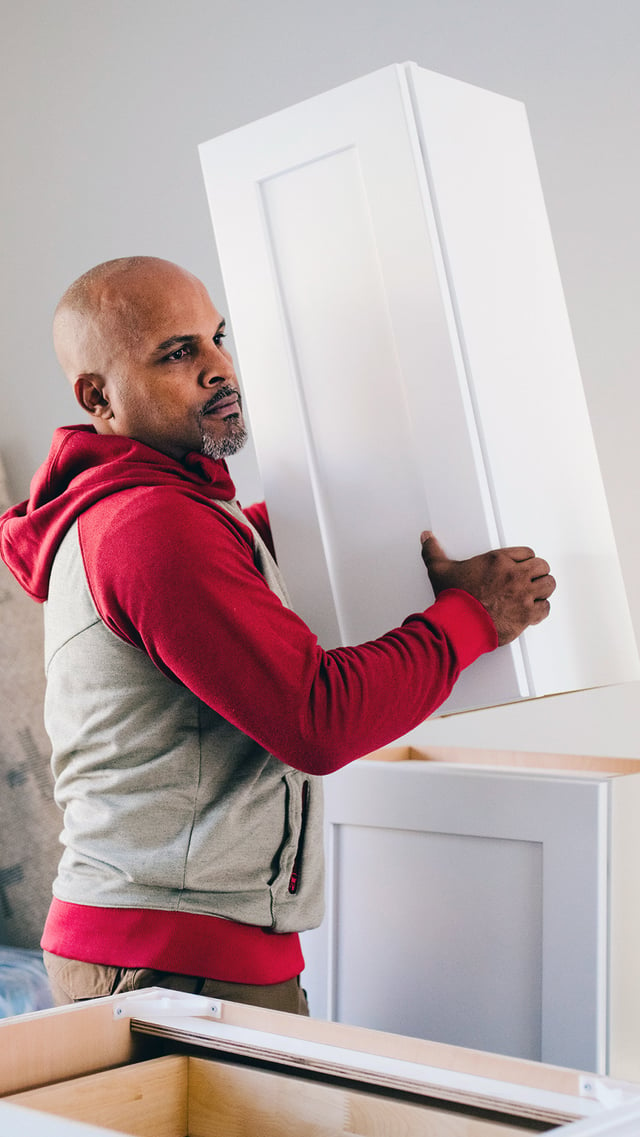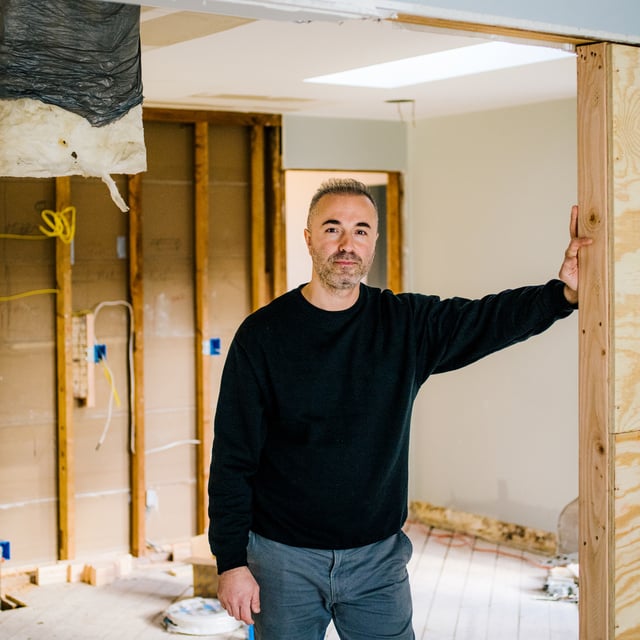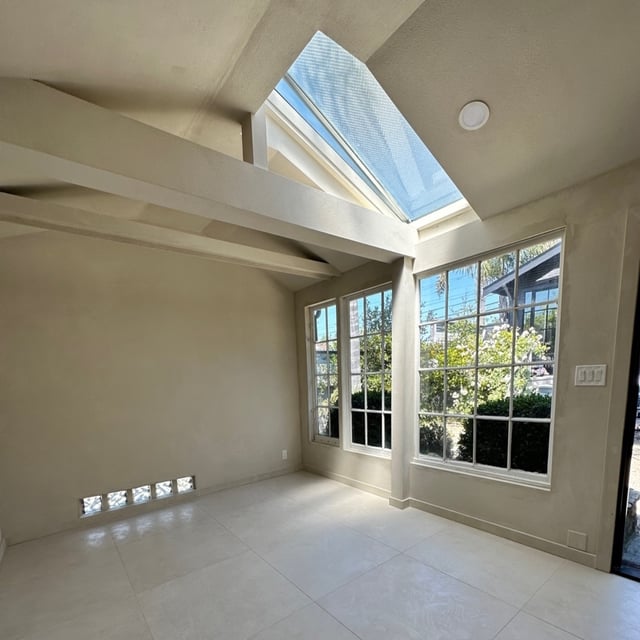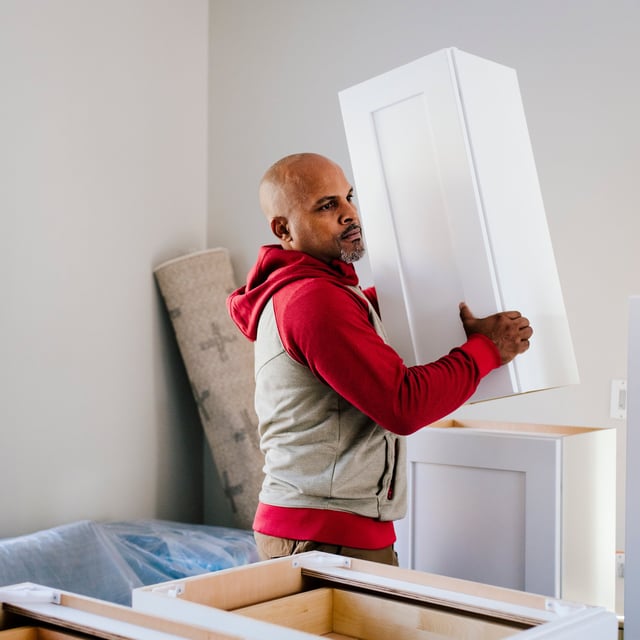
Contractors
Ultimate Guide to Bathroom Remodel Financing in 2025
03.13.2025

In This Article
Cabinets are an essential part of a kitchen. After all, it’s how you keep all those blenders, mixing bowls, and dinner plates organized and tucked away, so it’s worth taking the time to choose the right ones. If you’re replacing your kitchen cabinets and you’ve picked the perfect ones, you’ll need to decide if you’ll install them yourself or ask a professional for help. Here’s what you need to know before tackling the job.
Nothing ruins the fun and efficiency of an installation like multiple trips to the hardware store. To make the process easier, you prepare all the tools and materials in advance. Here’s what you’ll need:
Tools:
Materials:
The following steps will help you set up the upper cabinets in your kitchen:
This first step will help you prepare the installation area for work. With a tape measure, check the height of the base cabinets and draw two lines. The lines will be 34½” and 54” respectively from the highest point on the floor where the lower cabinets and wall cabinets will sit. Draw a horizontal line across the wall that will serve as a guide when you begin hanging the cabinets. If your floor is not leveled, be careful to ensure you’re taking measurements from the highest point along the wall.
After outlining where the upper cabinets will be placed, use the stud finder to locate the wall studs. Mark them on the wall and test them using a hammer. It is important to ensure that the studs are placed at the right spot where you’ll be screwing the cabinets. This is because the wall studs are crucial to support the weight of the cabinets.
Place the ledger board on the wall by screwing it into the marked studs. This board is temporary and helps make the overall installation process easier because it acts as temporary support for the cabinet during the installation.
Once you’ve secured the ledger, remove the doors and hardware from the cabinets. This will make them lighter and easier to install.
Safely attach all the cabinets and lift them for installation on the ledger board. Use clamps to fix the stiles (the vertical pieces at the front of the cabinet) in place.
Use the drill to secure the two cabinets together at the stile. Next, fix one screw on the top and bottom and the rest in the front and back at the point where the cabinets meet.
Once the cabinets have been secured on the ledger board, check for plumb and level. If necessary, you can even shim the cabinets. This will help you level cabinets that are being nailed against an uneven surface. Next, secure the cabinets against the wall at the point where you marked the studs. After the cabinets have been placed successfully, you can begin attaching all the doors and hardware. Finally, you can remove the ledger board.
Apart from setting up the ledger board, you can repeat this process to install the base cabinets as well. If you follow the simple steps above, you should be able to install the cabinets yourself.

Renovate confidently with Block
Easily compare quotes from top quality contractors, and get peace of mind with warranty & price protections.
Thousands of homeowners have renovated with Block

4.5 Stars (100+)

4.7 Stars (100+)

4.5 Stars (75+)

Contractors
Ultimate Guide to Bathroom Remodel Financing in 2025
03.13.2025

Process
10 Things to Consider Before Starting a Home Renovation
02.04.2025

Process
Everything You Need to Know About Renovating an Apartment in NYC
02.03.2025

Process
What is an ADU? The Complete ADU Construction Guide
01.14.2025

Contractors
Everything You Need to Know About Hiring Home Remodeling Contractors
10.16.2024
Renovate confidently